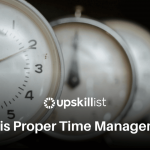
The psychology of sales
When it comes to sales and salespeople there is an obvious difference between those who just want to make a sale and those who approach the sales with careful thought and a game plan.
If you want to make your sales career a success, then it is incredibly important that you not only understand who your target customers are but you need to fully understand what pushes them to part with their money.
When you can focus on the emotional or physical needs of a customer instead of the possible value of your product it opens more doors. Put it this way, emotions are often more powerful than logic so if you can feel what your customer is feeling it becomes easier to adapt your sales pitch so that it focuses on the benefits to them and their lives. This is far more effective than just trying to push that sale at all costs.
But how do psychology and sales interlink?
Let’s start by saying that focusing on the costs of the product will not be nearly as effective when compared to focusing on the wants and needs of your target market. Great salespeople who understand this concept know that instead of trying to convince people to buy your product, it is far easier to market to a group that already needs your product. It is more focused on what they actually need and want instead of the price you are offering. If you can link your product to your target markets values, your offering instantly becomes that much more attractive.
The key principles that use psychology to sell
Here are seven principles that an effective salesperson can use to get through to their customer without them feeling like you are pushing your product or service at all costs.
Fear of missing out
The fear of missing out is a powerful technique to use because it makes the customer feel like if they don’t pull the trigger on the purchase now, they might not be able to get the product at a later stage or, they may end up paying a lot more for the product in the future.
Salespeople that are skilled at this technique use persuasive phrases that have been proven to work. They use lines like, “this is a limited time offer” or “this version of the product is a limited edition.” People also love to have things that others can’t get or that are scarce.
Authority or expert
When a salesperson is seen as an expert in their product and its benefits, they are a lot more likely to close deals than those who do not have this type of reputation or image. The reason for this is quite simple, people are more likely to part with their money when they trust the person selling the product. If you can get your product endorsed by more trusted individuals, it makes your offering look more legitimate. If the specialist doctor recommends your product, it must be great. People find it easier to purchase when there are recognised professionals backing your product.
Charming
People often make purchases based on the emotional responses of and to the salesperson. In short, you are more likely to buy a product or service from a person who you like. When a salesperson can tap into the customer’s emotions and then react in a way that produces positive emotions, the customer feels at ease and enjoys the positive emotions that the salesperson is creating. The whole interaction is pleasant. People are more likely to make purchases when they feel good.
Social centric
People have an internal need and drive to like the same things as their friends and social groups. Think about trends. This is a perfect example of this concept. If everyone else is wearing a certain style of jeans, it is likely you may want a pair too. When your offering is recommended by family and friends or even those at your workplace, it has the ability to subconsciously make you feel you like the same thing and need one, so you are not left out. Sounds like FOMO to me. This is where the power of reviews and recommendations comes in. Companies that have a lot of positive reviews on their website or Google page often benefit by making even more sales. It can become a snowball effect where everyone wants what you are offering.
Commitment
When people feel the need to change an aspect of their lives it opens a door for the salesperson. If you can find a way to market your product so that the customer feels they need it in order to stick to their commitment you will make more sales. Just selling nicotine patches to anyone and everyone is likely going to result in a few sales and maximum frustration for the salesperson. When you figure this out and begin to target a specific audience you would likely do much better. An example would be to market nicotine patches to people who are trying to quit smoking or even just to smokers in general. Many smokers want to quit but feel they just can’t because the addiction is too strong. If you market your patches to this group, some will buy your products because it will offer them support in their commitment to stop smoking.
Giving back
Many people feel a strong need to return a favour or give back after receiving something. If a salesperson goes out of their way for a customer and does this with a smile, the customer might subconsciously feel they have to buy the product, so all the hard work was not for nothing. Getting a bag of free makeup might and often will push the customer to make more purchases simply because of an internal need to reciprocate.
Togetherness / Unity
This is where a smart salesperson markets their product to highlight the benefit to a specific community. People like to come together and gather in their preferred social groups and if you can somehow show that what you are offering will benefit the group, it should result in more sales.
Tapping into these principles will surely raise your sales game and help you refine your technique. Now, make those sales and close those deals!
Learn how to reach your full potential by understanding the art of successful selling, creating and building up your own brand, and honing in on a “Millionaire Mindset” to reach your goals by taking our Sales Course.



